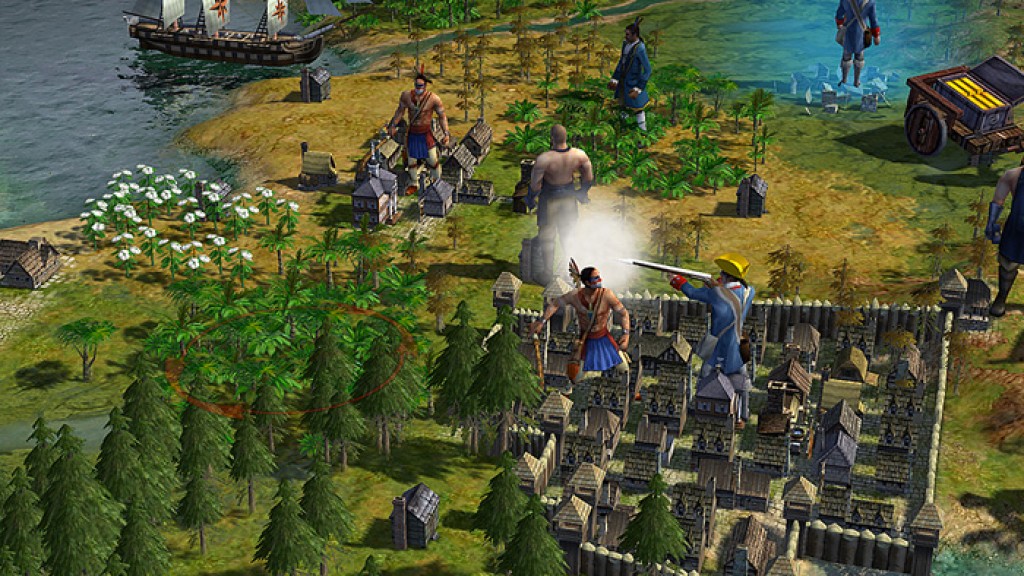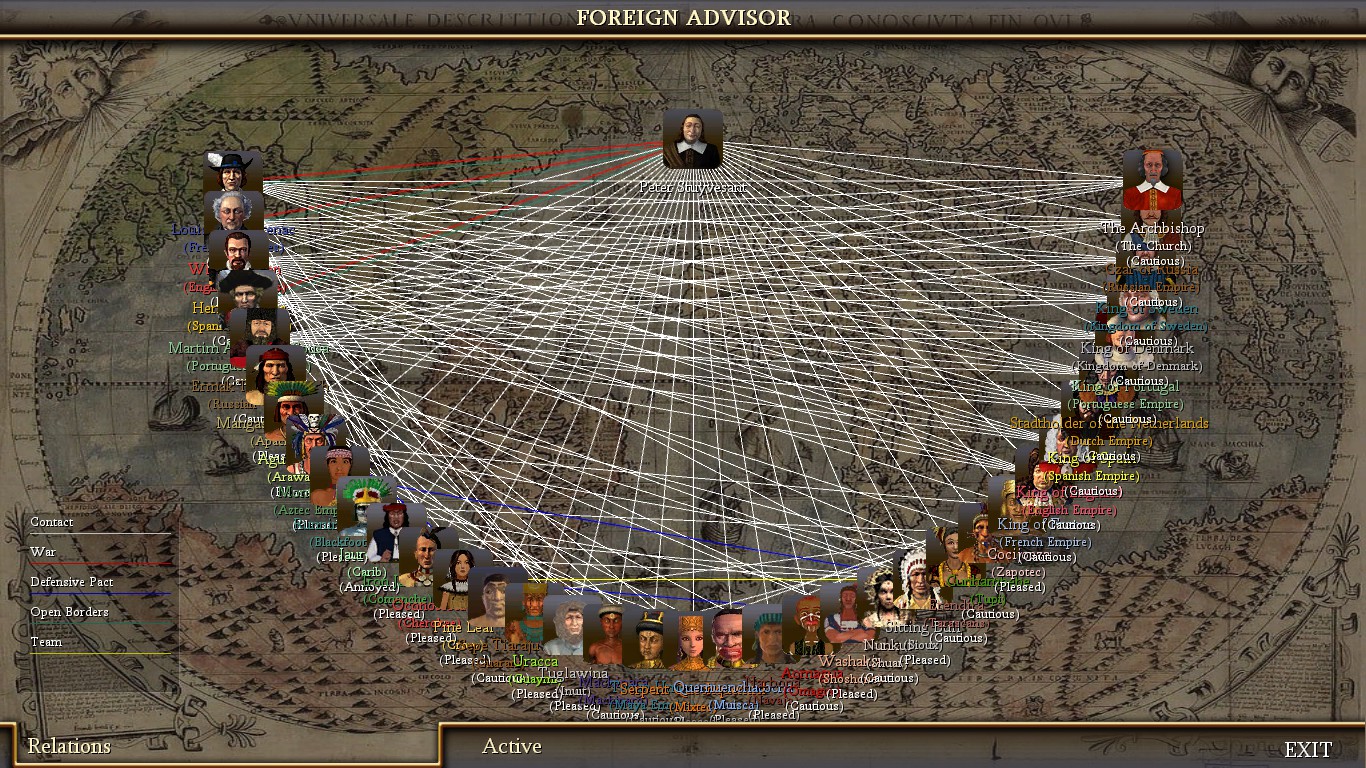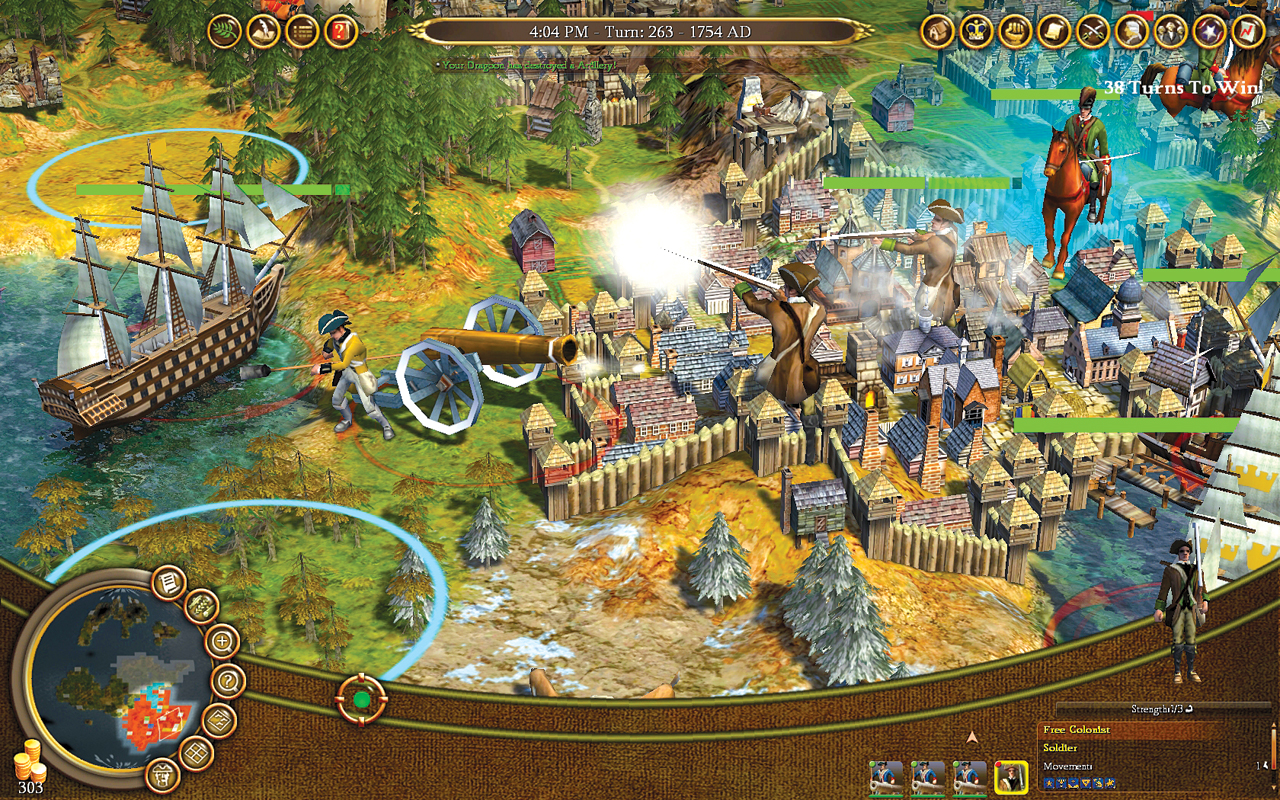

Docks, churches, sugar processing plants etc. In your cities you can build a fairly unsurprising selection of buildings to assist production. The automate option for the trade ships didn’t automatically stock up my ships and send them to Europe. I may have missed an option somewhere, but I was frustrated at continually having to move my ships manually from port to Europe and back, especially when my colony got reasonably big. Trade is a clumsy affair at times, as land-locked cities will need trade wagons to move goods to port cities in order to get the next ship back to Europe. Careful management will see you avoid any real conflict with the local tribes, allowing you to get on with making some cash. The local tribes are a good source of income via trade as well. Whilst New Zealand history teaches us that this isn’t necessarily going to work long term, it’s the easiest path to success in the mid game here. In Colonization, diplomacy is far more important than military might, and expansion normally involves paying off the local tribes to use their land. The usual balancing act applies, so if you have too many colonists producing commodities then not enough food is produced, and vice versa.Īs your economy gets going, you’ll follow some basic Civ principles.

The same applies to trade goods, such as sugar, rum, cigars and so forth. Luckily colonists can be specialised, and you may just get an expert gunsmith to produce guns at a far more efficient rate than a typical colonist. And you’ll need to allocate a colonist to do so. Unlike Civilization IV, where everything comes down to production, here you must build the things you need, from the appropriate resources. Adding them to a city enables you to allocate them to production of goods, food, or religion points. Each city must have enough food to support the colonists you wish to add. Once you have a few colonists, you can either build some more cities, or allocate them to your existing cities. Your first city is probably best placed near the coast, as water tiles generate a lot of food from fish, and food is what lets you grow your cities and produce colonists on land, rather than dragging them all the way from Europe. The choice here is very important, as where your city is located correlates to what resources you can get and how much food you can generate. The game really starts when you build your first city. Initially, all you have to do is find some land and drop off your colonials, before sending your ship back to Europe to wait for some more colonials to appear. You start out with a ship, and a couple of colonials in uncharted waters with no land in sight. Your goal is to conquer (rather diplomatically) the ‘New World’. Well, a corner of it.Ĭolonization is all about 1492, and Europe getting its occupation on. However, I can confess to being a Civilization fiend, so I popped the disk in and prepared to take over the world. You may get the feeling I’ve never played the original Colonization, or have any idea what it was about.


Remove Civ's multiple victory conditions, most of the warfare units (can’t have nukes in this era, stupid historical accuracy!) and give everyone silly hats. You take Civilization IV and change the scope to the colonisation era of the Americas, as Europe expands across the globe. This game, to the uninitiated (me, for instance), might not at first glance be particularly appealing.


 0 kommentar(er)
0 kommentar(er)
